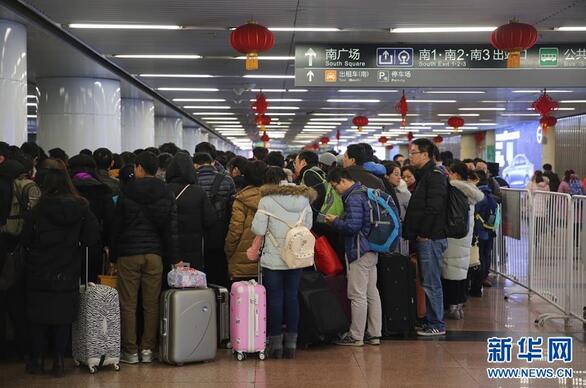 |
|
In 2016, Beijing’s population was 21.7 million, and the number of permanent residents in the six urban districts fell by 3 percent year on year. [Photo/Xinhua]
|
Beijing has made progress in cooperation with its neighbors and will act to restrict population growth.
Beijing officials met with the press on Friday to review progress made over the last three years in the integration of Beijing, Tianjin and Hebei Province.
Liu Bozheng, deputy director of the office overseeing the integration, said Beijing will meet its annual targets of restricting population growth and moving non-capital functions away from the city.
This year, Beijing will continue to relocate wholesale markets, factories, universities and hospitals to suburban areas and Hebei, he said.
In 2016, Beijing’s population was 21.7 million, and the number of permanent residents in the six urban districts fell by 3 percent year on year, said Liu.
“The changes are unprecedented. Before, the mode of growth was to congregate resources, but now we must delegate and move out resources to achieve more planned and sustainable development,” he said.
From 2013 to 2016, Beijing closed 1,341 general manufacturing and polluting enterprises. This year, 372 manufacturers have already been relocated, 74.4 percent of the annual target.
Manufacturing and agriculture dropped by 72.75 percent and 26.42 percent, while, industries like finance, culture and technology grew as much as 22 percent.
“Industrial restructuring is the key. It is like pealing away the outer layers of a cabbage, and cooking its core, which is of better quality,” said Liu, with Beijing Municipal Commission of Development and Reform.
This year, a total of 255 construction projects will get underway in Tongzhou, the subsidiary administrative center.
“We invited some of the world’s top designers to build Tongzhou, which covers 155 square kilometers,” said Liu.
By the end of this year, several government buildings will be finished and staff be ready to move.
Liu said Beijing will support Xiongan New Area. “Whatever Xiongan needs, Beijing will provide its support. The two wings of Tongzhou and Xiongan will develop in tandem,” said Liu.
